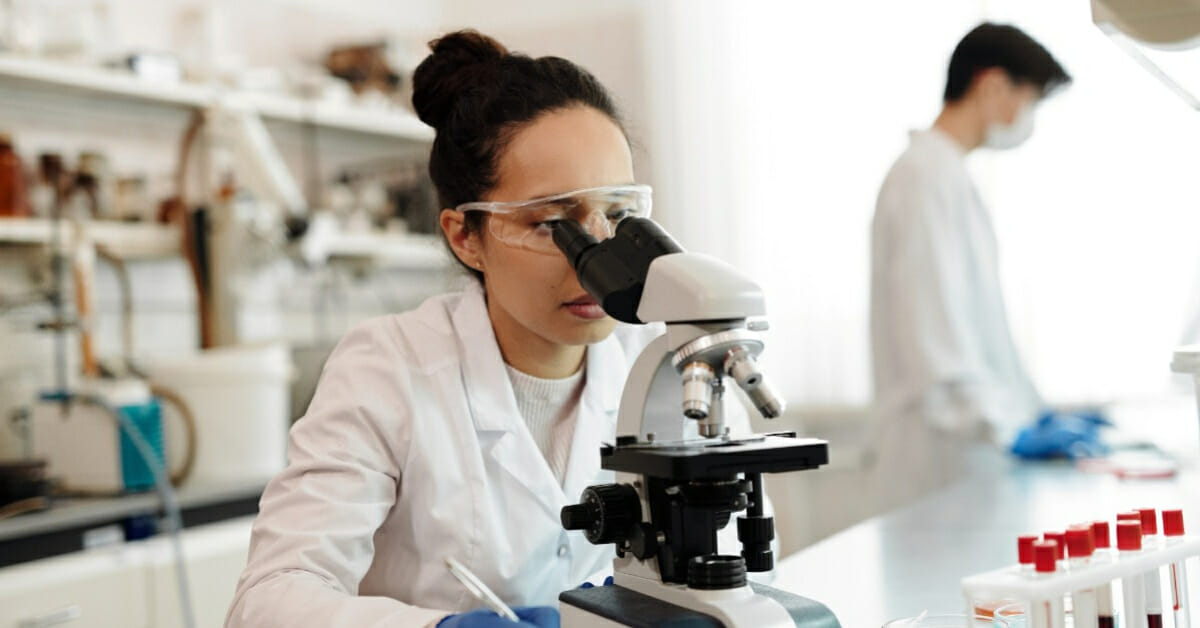While test scores and grades weigh a lot on the application, they are not the only factors that matter for admission into medical school. Many medical schools uphold a value of admitting “well-rounded” applicants and accept students who have a balanced mix of good grades, test scores, and involvement in their communities and hobbies outside of their academic and career goals in medicine. It’s important to engage in extracurriculars to showcase your genuine interest in the medical field through volunteering, research, or work experience.
However, medical schools also take into account your personal interests in things outside the field because it helps them learn more about you as a person and how you relate to your community. The ultimate goal in this portion of the application is to express yourself, your mission in medicine, and who you are as a person outside of the numbers.
How Many Volunteer Hours Do You Need for Medical School?
One of the main reasons you may be planning to go to medical school is to help people. It may be cliché, but it is a valid reason for the majority of those going into this field. Healthcare is built on altruistic values, not just for physicians, but for nurses, dentists, physical therapists, pharmacists, and so on.
Volunteering is an extracurricular experience many students include in their medical school application because it can show genuine motivation to give back to one’s community, and personal experience can sometimes be a motivating reason why one decides to pursue the field.
My brother was initially in accounting and had worked in a firm for a few years. One day he was asked by one of his friends to volunteer at a local community health center for a special charity event. His experience helping the underserved community at that time and learning from all the healthcare workers greatly impacted his career trajectory: he quit his job and is now in the process of applying to medical school. His story is not the only one. I have met and made friends in medical school who are non-traditional students who changed their minds about their career, either through their own experiences volunteering or going on mission trips. Many medical school admissions enjoy these stories as they show how motivating helping others can be in this world and how it can lead to the desire to provide health services to others.
If you do decide to volunteer, you may be wondering how many volunteer hours you need. At the end of the day, it really is up to you! The hours you put into volunteering show how much of your own extracurricular free time you put into your community when you can. While many competitive students may provide over a thousand hours of community service, it is important to note that your application encompasses you as a whole.
Admissions do take in consideration the time you have, especially if you are working on top of going to school, however, it is a good idea to have some volunteer hours rather than none.
The general rule is to get roughly around 100 hours done.
It has become somewhat of a norm to include volunteer experience in medical school applications, but again, with everything added into the application it is not the only thing. Take into consideration the time you can provide in volunteering in your community, and also try to involve yourself in something that genuinely interests you. Some admissions boards will ask what kind of volunteering you were involved in and why you chose to invest your time in that particular area. One of my friends volunteered for two years at a Special Needs Education center, and he talked about how his experience aligned with his goal of being a Special Needs Pediatrician, which many of the admissions faculty found appealing and led to his acceptance, showing how helpful volunteering can be to your application.
Medical Mission Trips for Pre-Med Students
Similar to volunteering, medical mission trips are another way to become involved in helping underserved communities, whether domestically or internationally. Many pre-medical students join university organizations that go on international mission trips, which can also be an eye-opening impetus for wanting to work in the healthcare field. While medical mission trips are not uncommon on medical school resumes, it is not as important to add to the application. It does classify as a type of volunteer work that may have its own unique appeal, depending on the experience gained and expressed from the trip.
I have not been involved in a medical mission trip myself; however, a classmate of mine from undergrad used to go to Honduras with a healthcare team and provided service to a small village. She was initially reluctant to go becauseshe had never traveled internationally before, but her experience changed her perspective on our own healthcare system and how fortunate we are to have certain essentials that other countries may not have. She continued to go on the same trip every year throughout her undergraduate career and matriculated into medical school by writing about her own experience on her medical mission trips. She is now working towards an M.D., MPH and wants to implement international health policies for other countries in hopes of bringing positive light to those who are in need.
Whether you decide to go on a medical mission trip or not, what you gain through any volunteer experience is what makes a difference on your resume and helps admission boards understand your own personal mission in medical school.
Is Research an Extracurricular Activity?
Many students ask if research is considered an extracurricular activity, and the answer is yes! Working and participating in research has become a factor in medical admissions committees when they look at your resume for admission. While it is an extracurricular and not necessarily a requirement, research definitely can be important because it is worth a lot of points when listed as something you do outside of your regular academic coursework. Much of the health profession relies on research, whether through gathering, interpreting, or sharing of information. Experience in research can indicate understanding, commitment, and investment of time towards something that is heavily incorporated into the medical field. Research is also a factor for residency and fellowship applications, where familiarity with research practices from before medical school can give you an advantage
Research can be very beneficial to include in your resume if you have a genuine interest in it.
If you want to get involved in research, one way to get started is by establishing relations with a professor who is working in a subject area of your interest. Another alternative is to become a part of a research club at your university or college. Such groups are helpful for getting to know research sponsors or professors doing research who may need assistance in their own labs or projects.
Remember, it is better to do something that actually interests you, rather than just putting a “check mark” on a list of things you think you should do.
This is because during medical school interviews, admission counsels sometimes dig deep and ask you information regarding the research you are doing, the purpose behind the research, your own contributions or tasks, how society may benefit from said research, and so forth. For my own interview, I was asked about my heavy research background and how I started in it. I was also asked about the type of research I did because it was unique, yet it also incorporated an aspect of medicine, which made for good conversation on interview day.
I personally got involved in research through a random, unexpected opportunity. I had a question about an assignment and attended my undergraduate biology teaching assistant’s office hours. During that session, the teaching assistant and I talked about some genetics problems and he suggested I follow-up with the course professor. The teaching assistant also asked if I had any research experience and if I would like to participate in one of his projects as he was short a few volunteers. I did not anticipate such an offer and immediately said yes. Ironically enough, I went to visit the course professor a few days later and while discussing questions about the assignment he also asked me if I was interested in taking part in his research project with his graduate students. While my joining research was initially unintentional, it goes to show that you may find opportunities just by visitingyour professors. I was also involved in an undergraduate research club in my university, where we had sign-ups and held events for students to get involved with professors or find opportunities to volunteer for research projects. Through my own involvement in this extracurricular club, I was able to find a professor I had previously taken a course under and reached out to her to help in her research group. I have also had colleagues who personally ask their professors if they have any kind of projects or need assistance in their work, some of whom were able to participate in research they were interested in that was sponsored by a professor they knew. If you would like to take part in research, try to reach out to professors or seek involvement within your academic community. Sometimes the opportunities are right there and all you have to do is go for it!
Hobbies
While including extracurricular activities that are related to the health field and beneficial to the community is important, medical schools are also interested in what you personally do outside such activities. Admission committees want to know what you like to do for fun! This is where your resume can show a bit more of your personality in a unique way, highlighting yourself as a person and how you may stand out.
For example, I always get asked about my interest in breakdancing. It becomes a conversation starter and is very different from what many people would expect to see on a medical school resume. One committee member asked me to dance in the middle of my interview, which was hilarious for all of us. Now I’m not saying you have to dance or be a gymnast in order to get admitted, but sometimes just being yourself can really get you noticed even when you do not expect it.
One of my best friends in medicine was really into pet fish and building aquariums, which was a hobby shared by a member of his medical school interview admission committee. It was such an unexpected shared hobby that to this day, even after getting admitted into medical school, my friend and that committee member still talk about their own aquariums. It goes to show whatever your hobbies are, just list them! You never know who may also be interested in what you are also interested in.
Whatever you put on your resume for extracurriculars displays what you put your effort and time into and does not have to include any of these activities I’ve mentioned. Having volunteer work, participating in medical mission trips, and experience in research can all offer advantages in how medical school admissions view your application. However, it does not mean you have to bend over backwards to have all of these included in your resume.
The most important thing is to be a part of something in your extracurriculars that you are genuinely passionate about, because that is what medical school admissions committees will want to see and ask you about.
The most important thing is to be yourself, and if you are, others will open up to you, including your future patients.




